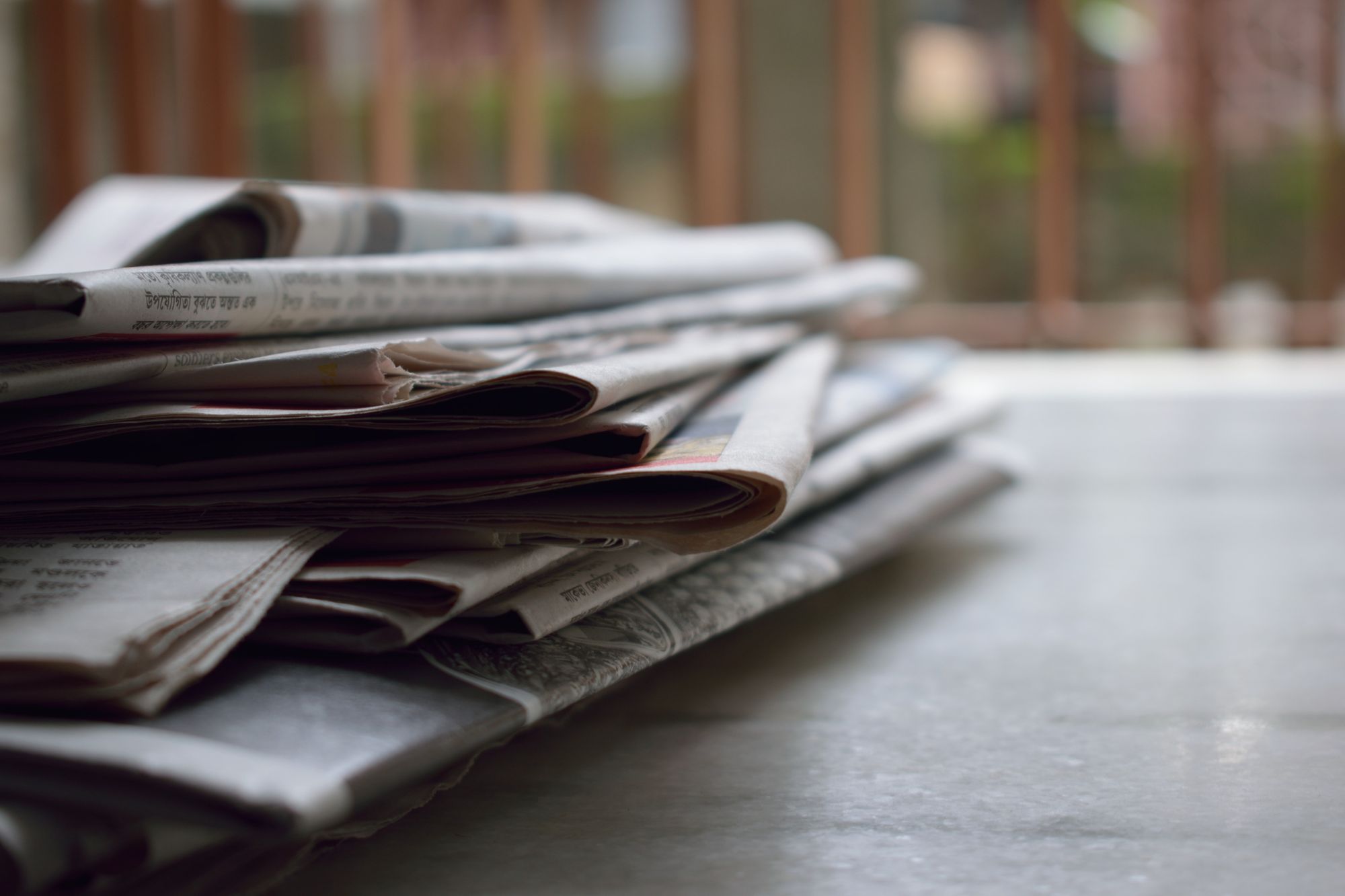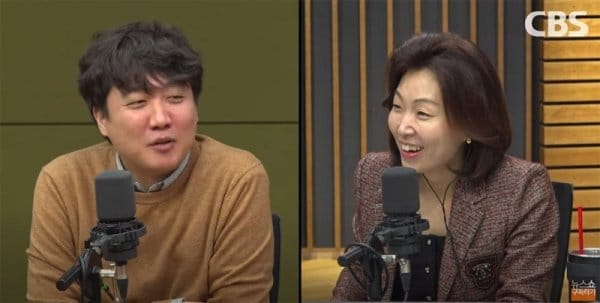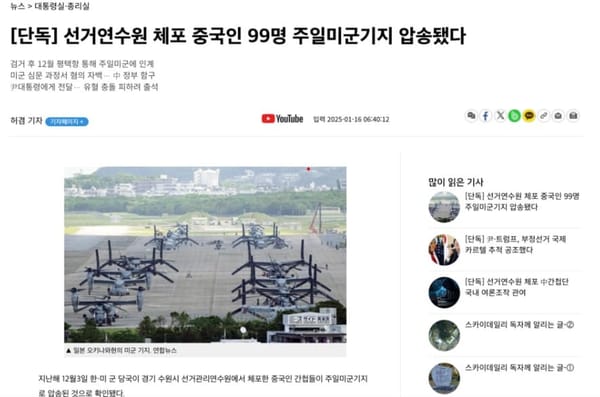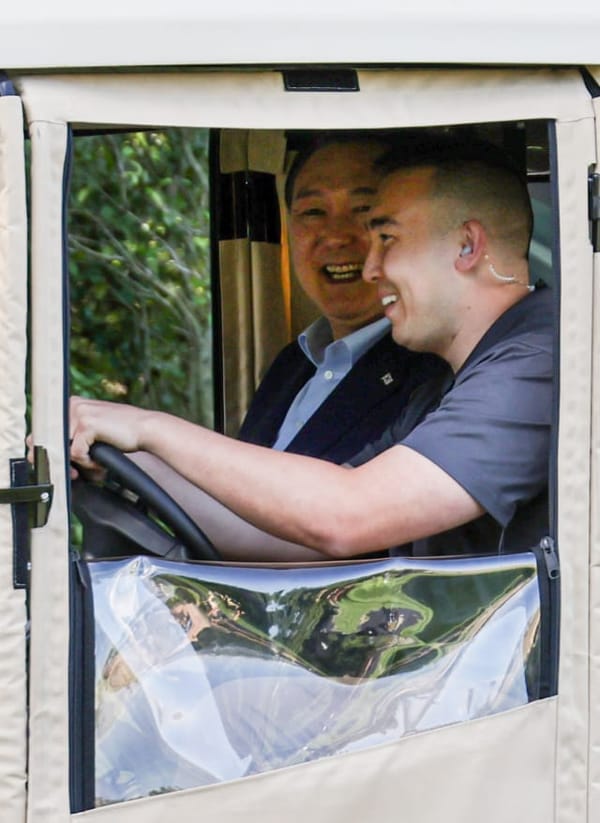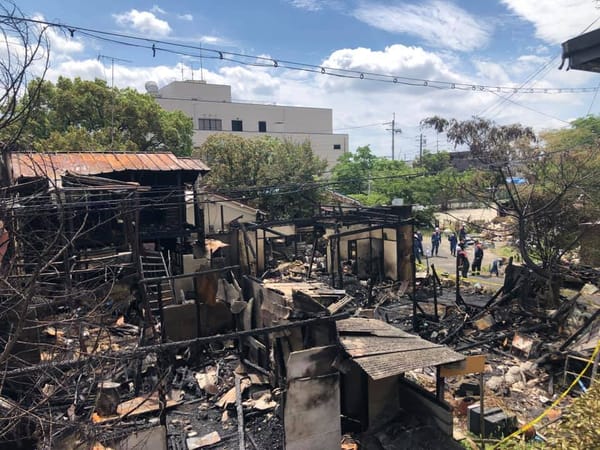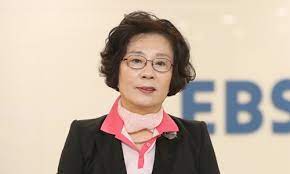Credit: Public domain.
Like South Korea’s democracy, the political press of South Korea is vibrant, fractious and dynamic. The media landscape for South Korean politics can be divided into three categories: newspapers, television/radio, and new media such as podcasts and Youtube channels. Because of South Korea’s history as a right wing military dictatorship, conservatives (whose political heritage can be traced to the dictators) enjoy an advantage in traditional outlets such as newspapers, while liberals hold an edge in newer forms of media such as podcasts.
In order of the number of paid subscribers as of 2020, South Korea’s ten largest daily newspapers are: Chosun Ilbo 조선일보, Dong-A Ilbo 동아일보, JoongAng Ilbo 중앙일보, Maeil Business Daily 매일경제, Korea Economic Daily 한국경제, The Hankyoreh 한겨레, Munhwa Ilbo 문화일보, Hankook Ilbo 한국일보, Kyunghyang Shinmun 경향신문 and Seoul Shinmun 서울신문. Out of the ten, Hankyoreh and Kyunghyang would be considered left-leaning, and Hankook would be considered moderate. Their influence is modest compared to the top three conservative papers: the sum of paid subscribers for Hankyoreh, Kyunghyang and Hankook is barely half of the number of paid subscribers for Chosun Ilbo, for example.
Television is another major source of news dominated by the conservatives. Among the three major television news networks - KBS, MBC and SBS - only MBC would be considered solidly liberal, while KBS and SBS are center-right. The balance of politics is significantly more tilted in cable news channels, where the three largest newspapers also operate affiliate TV stations - TV Chosun, JTBC and Channel A, respectively. Other news-only channels such as YTN and Yonhap News TV originate from news wire services, offering relatively dry news coverage.
Liberals have found their outlet in new media such as podcasts, Youtube channels and social media. In 2011, for example, the news podcast Naneun Kkomsuda 나는 꼼수다 hosted by left leaning pundit Kim Eo-jun 김어준 was the world’s most popular podcast with more than 10 million downloads per episode at its peak. (See previous coverage, “South Korea’s Most Important Pundit.”) While right-wing Youtube channels have also made inroads in the new media in recent years, the internet has been the place where liberals could compete with conservatives in shaping South Korea’s public opinion.
Because of weak journalistic standards, corporate ties and lack of rigor, traditional press enjoys very low trust among the public and is often seen as being a mere partisan mouthpiece. Use of unnamed sources and simple repetition of government announcements without further investigation are common practice. So is click-bait and sensationalistic coverage. It is rare to see any news critical of the Samsung Group 삼성그룹 on JoongAng Ilbo 중앙일보 (whose owner Hong Seok-hyeon 홍석현 is the uncle of Samsung’s leader Lee Jae-yong 이재용), or any news attacking the construction industry from SBS, which is owned by Taeyoung Engineering and Construction Company 태영건설.
Many South Korean journalists see themselves as direct participants in politics rather than its watchdog, as there is a steady pipeline of journalism to politics. In the current Yoon Suk-yeol 윤석열 administration, Culture Minister Park Bo-gyun 박보균 문화부장관 spent his entire career as a newspaper columnist before being tapped as a cabinet member. Former Assembly Member and current Senior Presidential Secretary of Public Relations Kim Eun-hye 김은혜 대통령실 홍보수석 was a news anchor for MBC News. On the liberal side, former Prime Minister Lee Nak-yeon 이낙연 전 총리 was a journalist for Dong-A Ilbo, while Assembly Member Han Jun-ho 한준호 국회의원 was also a news anchor for MBC News.
The close relationship between politics and media often leads to shocking instances of corruption. In June 2021, for example, the police investigated Eom Seong-seop 엄성섭, the main news anchor for the conservative cable channel TV Chosun, for having received bribes and sexual favors paid for by a businessman who wanted access to politicians. Also arrested for receiving bribes from the same businessman was Lee Dong-hun 이동훈, former journalist for Chosun Ilbo who was the spokesman for Yoon Suk-yeol’s presidential campaign.
Consequently, the South Korean public has the lowest trust in the news in the developed world. According to an annual study from 2020 by the Reuters Institute at Oxford University, only 21% of South Koreans trust the news - coming in 40th place out of 40 countries surveyed, four years in a row since 2016.


